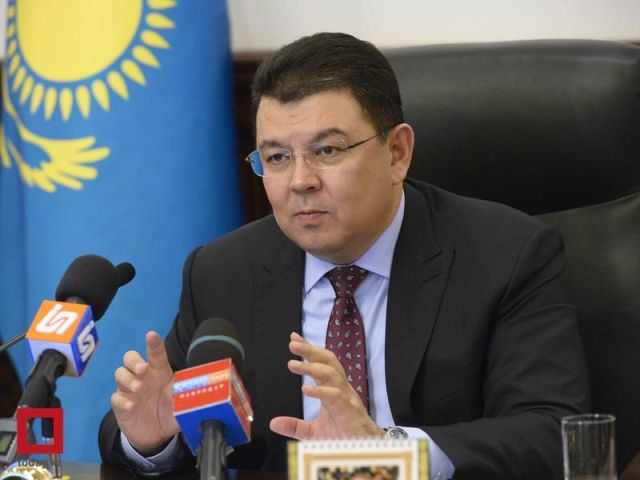ASTANA – Kazakhstan is consulting other producers on the potential easing of a 2016 oil output reduction agreement between the Organisation of the Petroleum Exporting Countries (OPEC) and non-OPEC members, Kazakh Energy Minister Kanat Bozumbayev said recently.
OPEC and non-OPEC countries agreed in November 2016 in Vienna to cut oil production by 1.8 million barrels per day, roughly 2 percent of global oil production, to ease a global supply glut and push up oil prices that dropped below $30 in early 2016 as the situation wa further exacerbated by China’s economic slowdown and the U.S. increasing oil output as a shale oil producer.
“We are now conducting consultations with our partners, non-OPEC members. I could not say anything concrete on that,” said Bozumbayev.
The deal came into force in January 2017 over an initial six-month period. Though the Vienna agreement yielded its intended effect, the latest OPEC and non-OPEC producing countries’ meeting in November 2017 agreed to extend oil output curbs until the end of 2018.
Kazakhstan’s oil output, however, continued rising.
Over the first four months of 2018, oil production in Kazakhstan totalled 30 million tonnes, 6 percent higher as compared to the same period last year.
Bozumbayev noted, however, the country lives up to its obligations under the agreement.
“We, Kazakhstan, are fulfilling our obligations under OPEC. We agreed that there will be a certain oil output volume and quota if it does not harm international investors. That is all what I can say,” said Bozumbayev, emphasising that OPEC has no claims against Kazakhstan.
The country’s oil production volume, noted the minister, is forecast to reach 104 million tonnes per year by 2025 from the current 86 million, thanks to the major Kashagan, Tengiz and Karachaganak fields.
During the next OPEC meeting slated for June 22-23 in Vienna, the countries are expected to discuss terms of the agreement and potential adjustments based on current market conditions, among other issues. Russian Energy Minister Alexander Novak and Saudi Arabian Energy Minister Khalid al-Faleh, representing the world’s two largest oil producers, recently said the countries may start steadily increasing their oil production in the second half of 2018.
Bozumbayev confirmed Kazakhstan’s participation in the June meeting.


